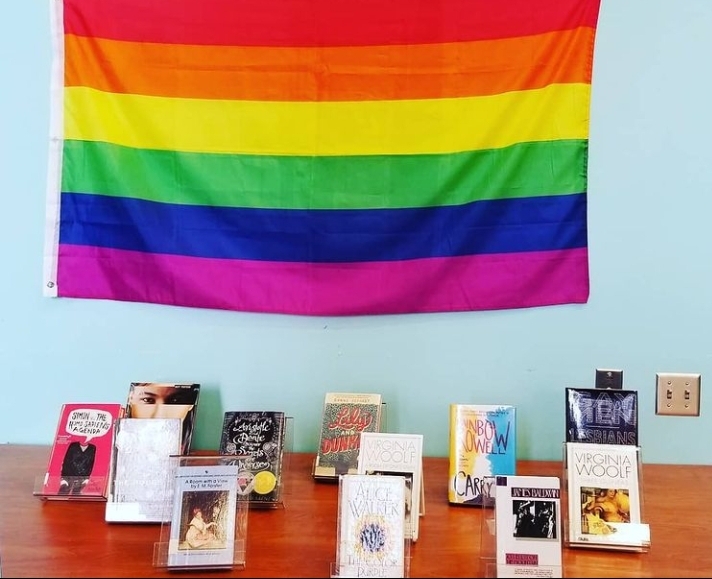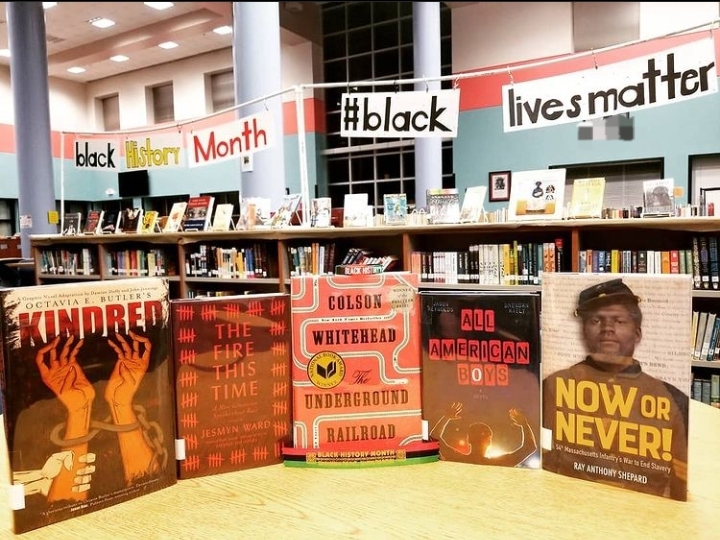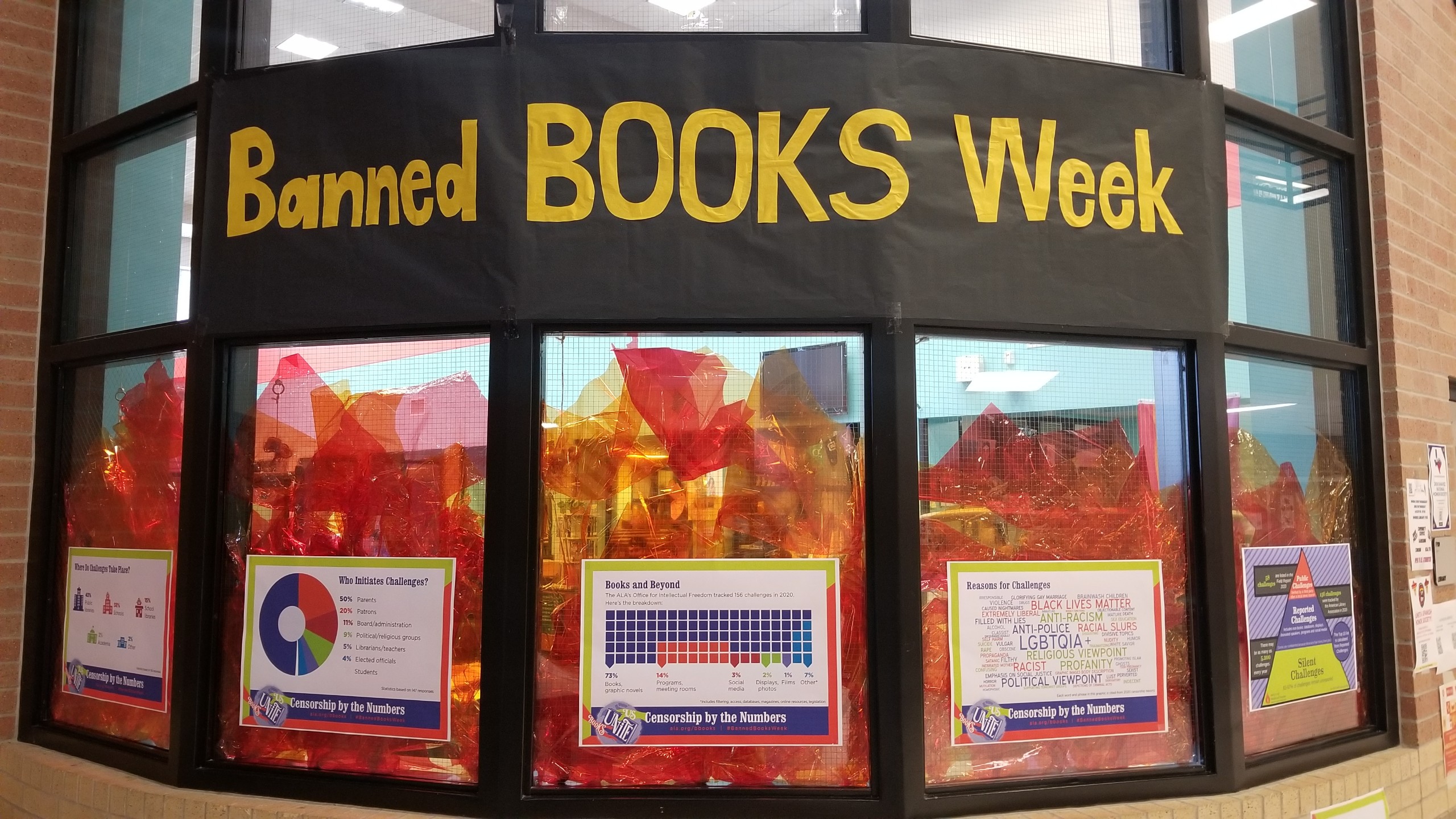This year’s Banned Books Week (Sept. 26-Oct. 2) has a renewed importance to me and the community of students I serve. You see, I’m a librarian at a public, inner-city high school in Houston. I’ve been an educator and librarian for more than 15 years. I’d like to think that I know what my kids like and need in the safe space I try to create for them through the library and all of its resources. But I sometimes worry about pressures on school communities to censor and exclude certain kinds of information that we as educators strive to teach our kids, especially the ones that most need to see themselves in the materials they consume. What’s important for people to remember is that it’s not just books that are being censored, but any kind of information that can shape a narrative or idea, from a speaker invited to give a talk, to an LGBTQ Pride flag hanging in a window. School districts in Texas are notorious for a more traditional form of idea censorship through the act of officially banning books from school libraries or book club lists. Earlier this year, 13 books were banned from school reading lists in the Leander Independent School District just outside of Austin. Some parents complained about books depicting sexual acts, violence, or profanity — all things that can be accessed in microseconds on a teenager’s smart phone. The situation got so tenuous that a school board member recently resigned.
This year’s Banned Books Week (Sept. 26-Oct. 2) has a renewed importance to me and the community of students I serve. You see, I’m a librarian at a public, inner-city high school in Houston. I’ve been an educator and librarian for more than 15 years. I’d like to think that I know what my kids like and need in the safe space I try to create for them through the library and all of its resources.
But I sometimes worry about pressures on school communities to censor and exclude certain kinds of information that we as educators strive to teach our kids, especially the ones that most need to see themselves in the materials they consume. What’s important for people to remember is that it’s not just books that are being censored, but any kind of information that can shape a narrative or idea, from a speaker invited to give a talk, to an LGBTQ Pride flag hanging in a window.
School districts in Texas are notorious for a more traditional form of idea censorship through the act of officially banning books from school libraries or book club lists. Earlier this year, 13 books were banned from school reading lists in the Leander Independent School District just outside of Austin. Some parents complained about books depicting sexual acts, violence, or profanity — all things that can be accessed in microseconds on a teenager’s smart phone. The situation got so tenuous that a school board member recently resigned.

A LGBTQIA+ Pride flag and book display at Christy's school library.
What many forget is that erasing access to uncomfortable passages from certain books creates a false sense of security for some and real harm for others. According to PEN America, the books banned contained “difficult but important issues related to race or gender, including racial discrimination, LGBTQ+ relationships, mental health, and sexual assault and violence.” Removing these books from a reading list or library shelves will not erase the need for some students to learn about inclusive ideas and feel more assured or secure in themselves. It only robs those students who would choose to read these books of the agency to decide and think for themselves.
Thankfully at my school, we’re a group of rabble rousers who prioritize holistically educating our students and making sure they can advocate for themselves. But some of us are scared of a potential scenario where people start reporting books and resources that are meant for all. Creating an environment that chills free access to information and ideas is really frightening, because it has no end.

A Black History Month and #BlackLivesMatter sign and book display at Christy's school library.
And even with a supportive school community, I have had some of my intricate book displays and select banners torn down with no notice or explanation. Banners that display “Black Lives Matter” and “LGBTQ Pride” have been stripped from the school’s library walls more than once. This may seem minor to some people, but to me it represents a different type of censorship that sends a covert signal to not publicly display the phrase “BLM” or a Pride flag for fear of making a small number of people uncomfortable.
I hope one day we can begin to accept that discomfort is not inherently bad, neither in education nor in our lives. Discomfort is sometimes part of how we learn and grow and accept new ideas. I faced discomfort when I made the leap to become a librarian. I knew that I wanted to make a change in students' lives outside of the classroom after teaching English for so many years, but I didn’t know anything about library science, and I didn’t know any other Latina librarians. I’m so glad I made that leap of faith. I realized that the time is now to be encouraging the next generation of students to embrace inclusion, literacy, and learning with a gusto.
Now the entire school are my students and the library is my classroom. As our principal likes to say, the library is the “heart of the school.” I couldn’t agree more, which is why we must hold it and all of its resources sacred.

